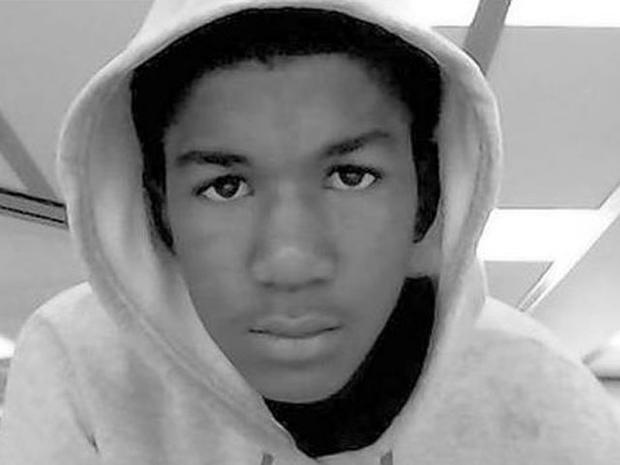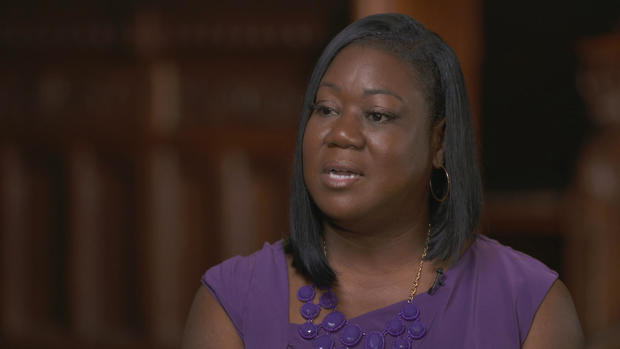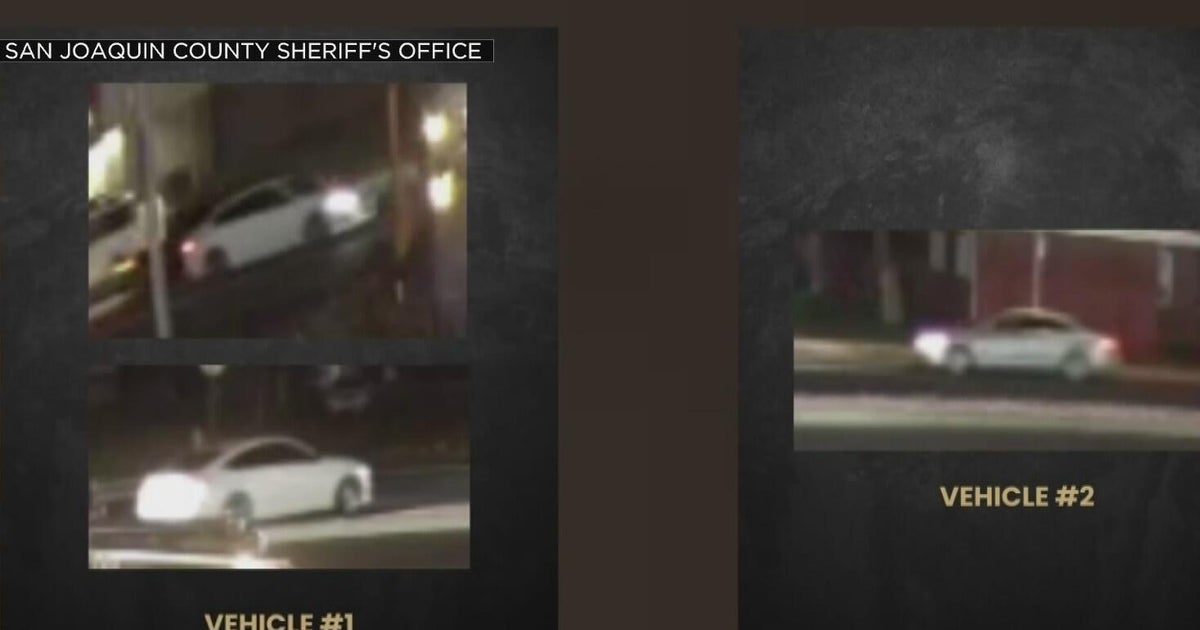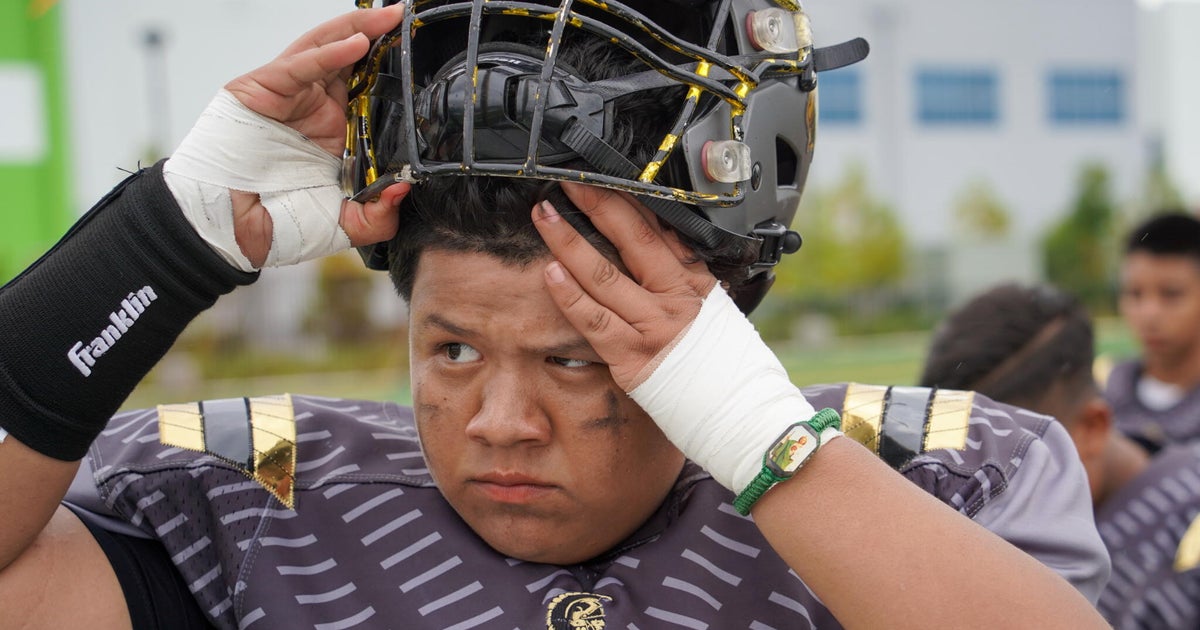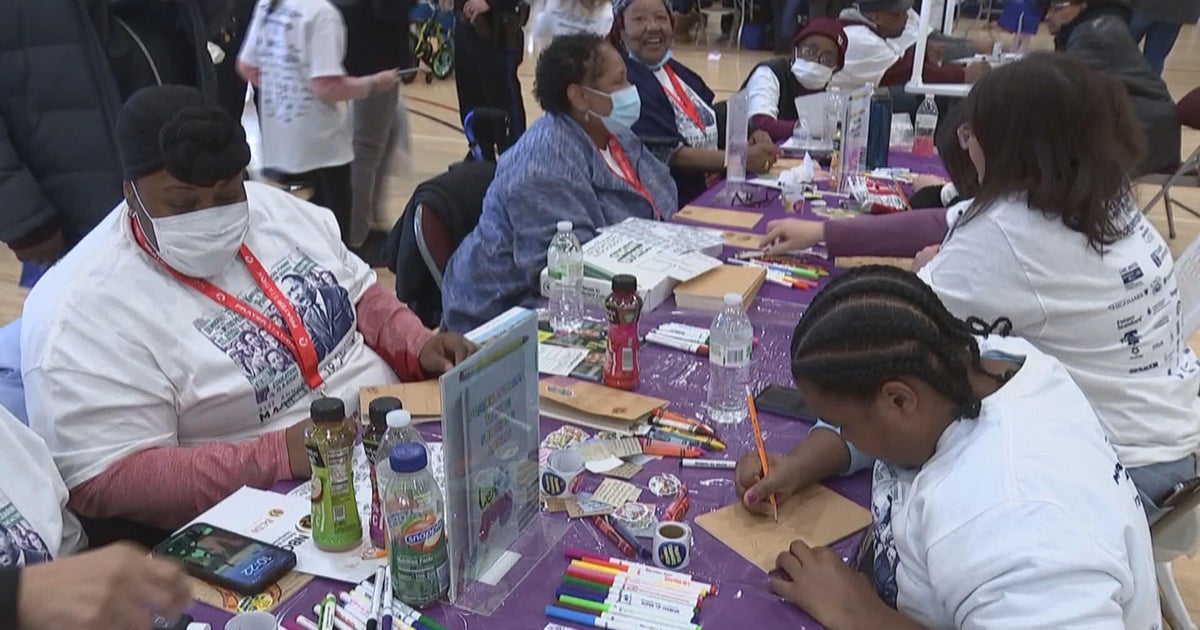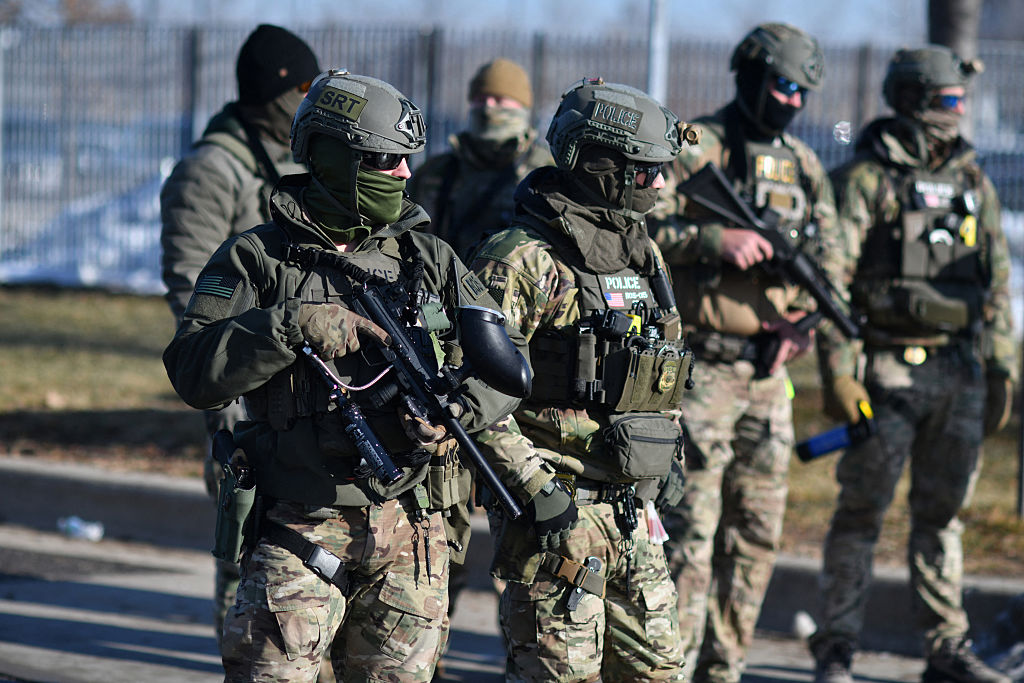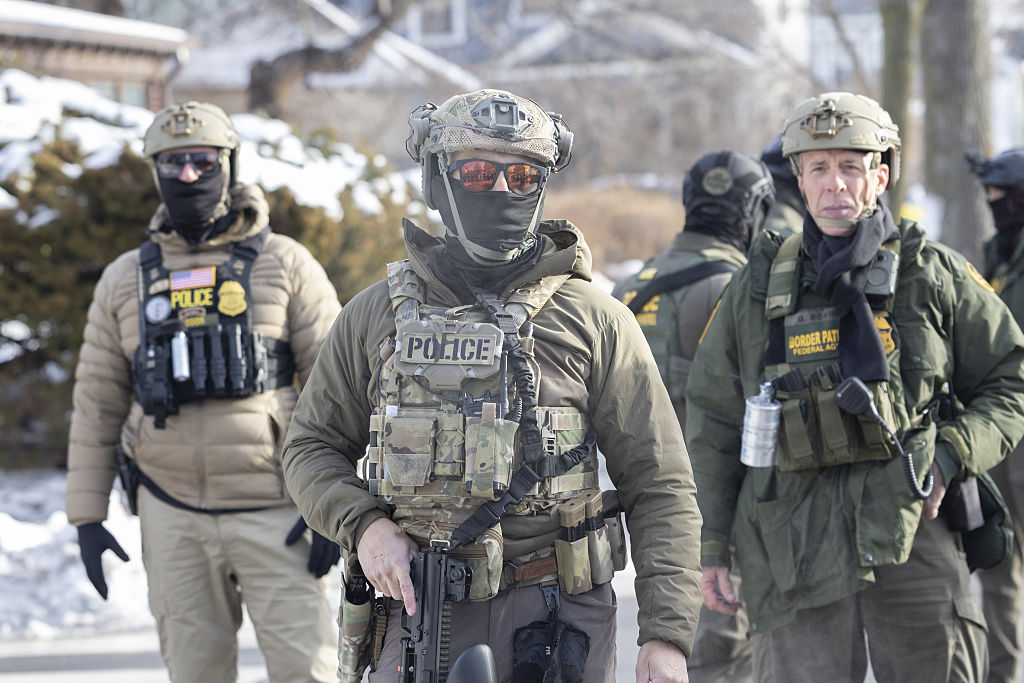Trayvon Martin's mother recalls opening "Pandora's box" of evidence 3 years after shooting
More than two years before Ferguson, the shooting death of Trayvon Martin was a call to action for many people. The unarmed 17-year-old was shot and killed in 2012 by George Zimmerman, who claimed he was attacked and fired in self-defense.
Now, Trayvon Martin's parents, Sybrina Fulton and Tracy Martin have teamed up with Jay-Z on the new six-part series "Rest in Power: The Trayvon Martin Story." It chronicles Trayvon's death and the protest movement that emerged afterward.
Earlier this year, Tracy and Sybrina were honored in New York's Cathedral of St. John the Divine for their activism. "CBS This Morning" co-anchor Gayle King met Sybrina there.
GAYLE KING: You and Tracy received an award in this church. And I've heard you say if it was up to you, none of us would know your name. None of us would know Trayvon's name. So how have you reconciled that now everybody knows you, everybody knows your story?
SYBRINA FULTON: I chose to live, number one. I chose to move to my next chapter because if my son had died and I had died also, and I was just walking around the Earth not doing anything, then I would be dead too... I was reluctant to, you know, even speak. Even to be the voice of my son, you know, which seems like that's the natural thing to do, is to speak for Trayvon, who's not here, but I didn't want to. I just felt so weak and hopeless and helpless… God really had to work on me to strengthen me to get me to speak up for other people. To speak up for my son. To speak up for myself.
Sybrina Fulton can still recall the moment six years ago when she learned that her son was shot and killed by neighborhood watch volunteer George Zimmerman, who claimed self defense.
FULTON: My son was innocent. My son was the victim. My son didn't shoot and kill anyone. He didn't even own a gun. People look at the situation... they get angry with it, but we have to get angry to the point that we're doing something about it and that's what I did.
KING: The death of your son, Trayvon Martin, certainly launched a movement. What was it like for you the first time you went anywhere and you saw crowds, thousands of people saying, "I am Trayvon Martin," or screaming his name? How did you process that?
FULTON: Well… It was here in New York.
KING: You looked so strong during that time... And I often marveled, "Does she feel as strong as she looks?"
FULTON: I did not. They didn't see me when I was very emotional. They didn't see me when I was depressed… And so where so many people were telling me how strong I was, I didn't feel it on the inside. And so I started speaking to myself. I started speaking to God. I started saying to myself, "I am strong." "I am strong" and then I started to feel like I really was strong.
KING: How do you grieve and recover from the death of a child?
FULTON: I think I had a great deal of support ... Early on, I started, like, reaching out to other mothers that had kids that were victims of senseless gun violence, and it kind of took the edge off of what I was going through... I had so many people that were positively, like, lifting me up... Even now, through my difficult days, when I have my bad days and you know?
KING: You still have bad days?
FULTON: Absolutely. I'm gonna have bad days the rest of my life. But it feels like something —
KING: What, what does a bad day —
FULTON: It feels like —
KING: You, you're triggered by a memory or, what is it?
FULTON: It doesn't really have to be a memory. It doesn't have to be something that I saw. I could wake up that morning and, and just have a bad feeling because it, it feels like I'm missing something. It feels like something is, is not right with my life. It feels like something is not in order with my life… And so I'm not afraid to cry. I'm not afraid to tell people that I cry. That's just on my rainy day but I know that a better day is coming.
KING: How do you feel about George Zimmerman?
FULTON: I don't give him a whole lot of time. A whole lot of focus.
KING: Have you forgiven him?
FULTON: I have not. I have not. I know that in my own time, in my own grief and this whole grieving process that I have to forgive. But by the same token, I'm not at that point yet. I'm very honest with that. A lot of people ask me that question, and I'm very open and honest about it. I'm very real with my feelings, and I know I have not forgiven.
She never could have imagined that her son's death would have this kind of impact as the catalyst for the Black Lives Matter movement, even Trayvon's hoodie would become a symbol.
FULTON: I call it Pandora's box, and it is the box of evidence that was given to me by the Department of Justice. Probably three years after Trayvon was shot and killed. And when I first got the box I said I wasn't gonna open the box. And of course curiosity bothered me for a while, because the box was in the house. And I, I opened the box and I cried and cried and cried.
KING: What was in the box?
FULTON: In the box is everything that Trayvon had on. His hoodie. His pants. His t-shirt. His socks. His shoes. His cell phone. His money. The drink. The candy. Everything is in the box.
Sybrina says she received a request some years ago to display those items to the public in a museum. At first, she wasn't ready.
FULTON: I didn't want anybody to see the things. I didn't want anybody to touch them. I just was like, "No." And so this year we're meeting now, there's a possibility, a strong possibility, that they may end up in the museum, because I feel like I have grown since that time, even though I gave birth to Trayvon, I just think that he is everybody's son, and I need to share those things with everybody.
Watch "Rest in Power" Mondays at 10/9c on the Paramount Network and BET.

